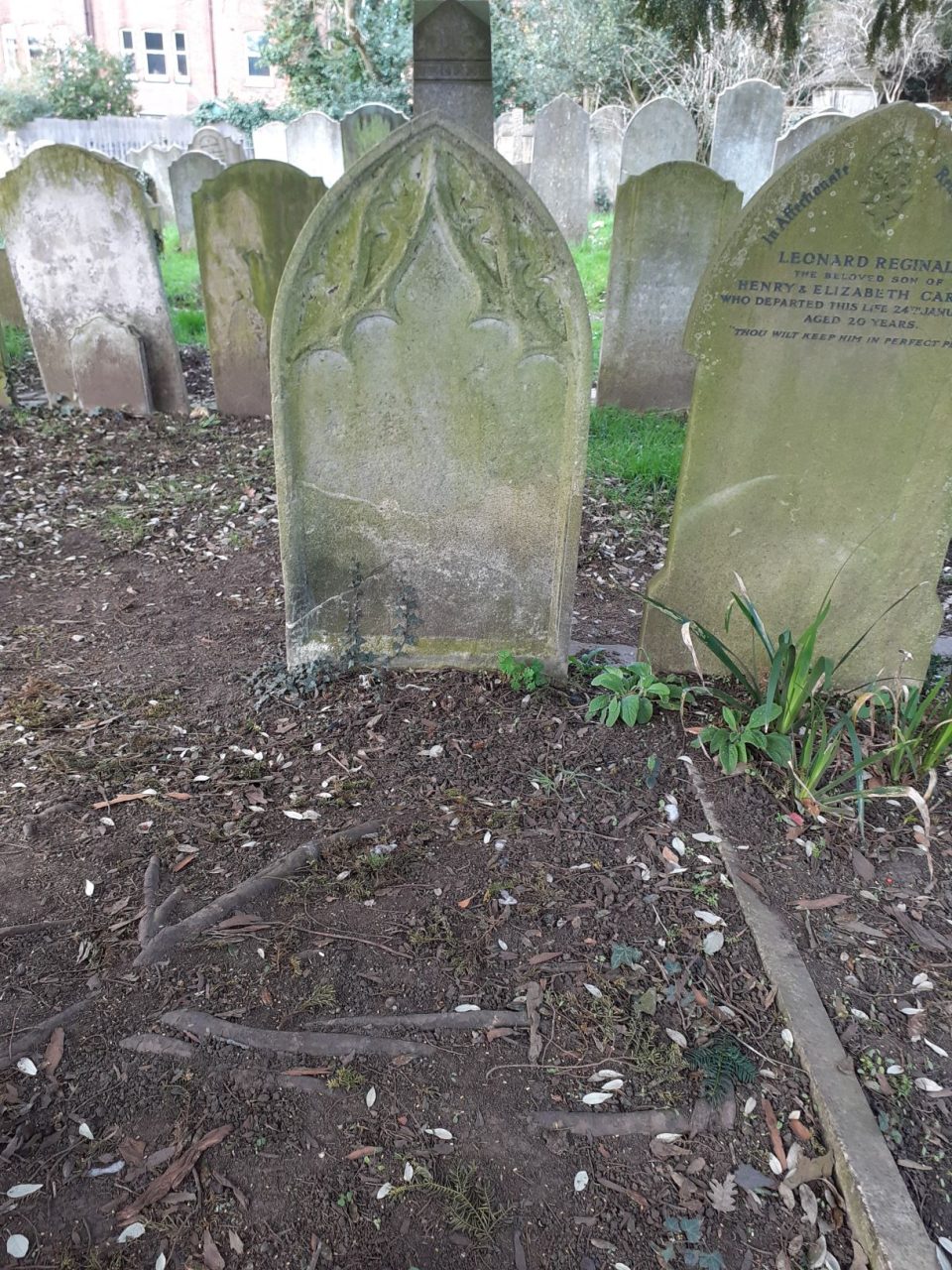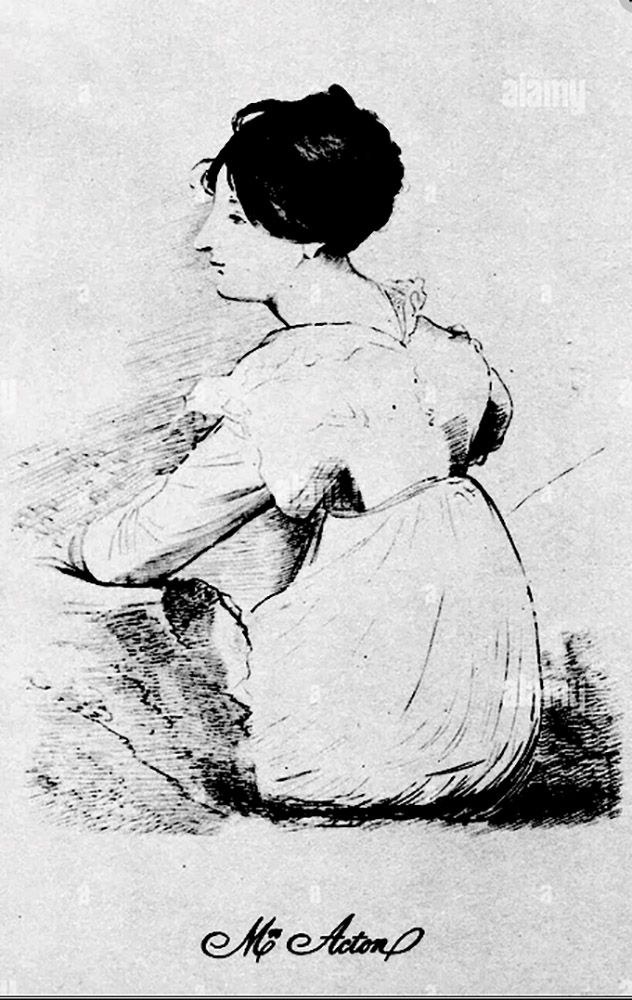Looking for Eliza Acton
The parish magazine in April features a piece on a new book on Eliza Acton, who is buried in our graveyard (see photo below). Her grave is hard to find. If you go in the gates of the Additional Burial Ground, take the path straight head of you that runs parallel with Church Row and then left up the last row, it is almost opposite the compost bins, under a tree. Unfortunately the lettering has all eroded. (But there are plans to mark her grave so people wanting to visit it can find it. More in the Parish Magazine.)
Eliza Acton was one of the people commemorated in the 1812 Flower Festival and Schools Project. If you go onto the Tomb with a View website https://tombwithaview.org.uk/ and enter her name into the search button you can read more about her and the impact she had on the domestic life of her readers. You will also get a link to images of the flower arrangement done to commemorate her.
We can also find Eliza Acton in her famous book, Modern Cookery for Private Families, first published in 1845. It was the first modern cookery book and was aimed at the ordinary reader rather than professional cooks. She introduced the now-universal practice of listing the ingredients and suggested cooking times with each recipe. She moved to Hampstead shortly after it was her book was published, and lived in Keats Grove. Isabella Beeton’s bestselling Mrs Beeton’s Book of Household Management published a few years later was closely modelled on Eliza’s cookbook.
She is also to be found in her poetry which was mainly about unrequited love, perhaps remembering the unhappy love affair with a French army officer. Below is a poem she wrote called ‘ Come to my grave’. You can decide on its merits. The engraving below is of a young Eliza, possibly around the time she wrote this poem
Come to my grave when I am gone,
And bend a moment there alone;
It will not cost thee much of pain
To trample on my heart again-
Or, if it would, for ever stay
Far distant from my mouldering clay:
I would not wound thy breast to prove
E’en its most deep, “remorse of love.”
The grave should be a shrine of peace
Where all unkindly feelings cease;-
Though thou wilt calmly gaze on mine
I would not live the hour to see,
Which doom’d my glance to rest on thine :-
That moment’s bitter agony
Would bid the very life-blood start
Back, and congeal around my heart!-

